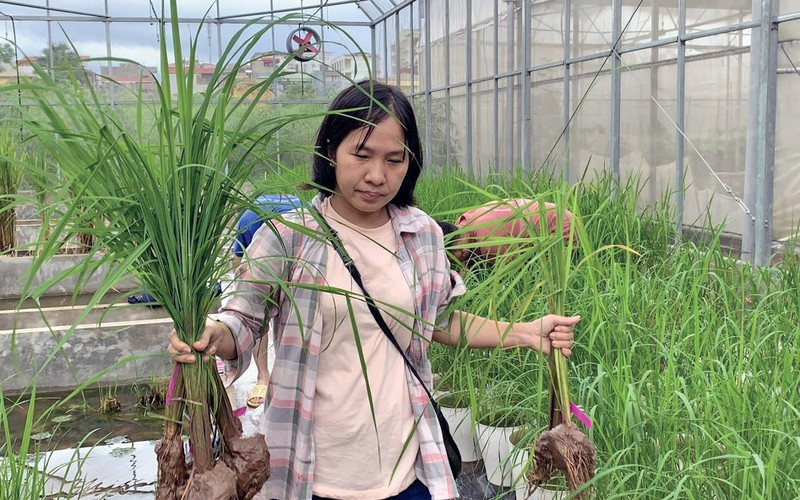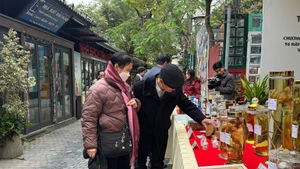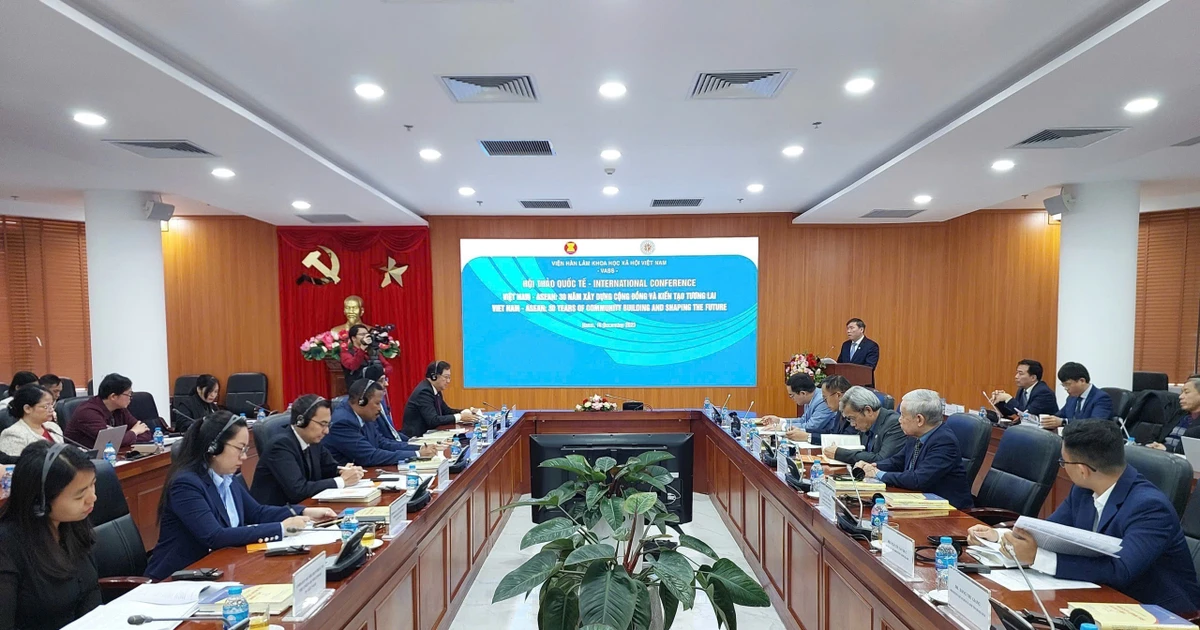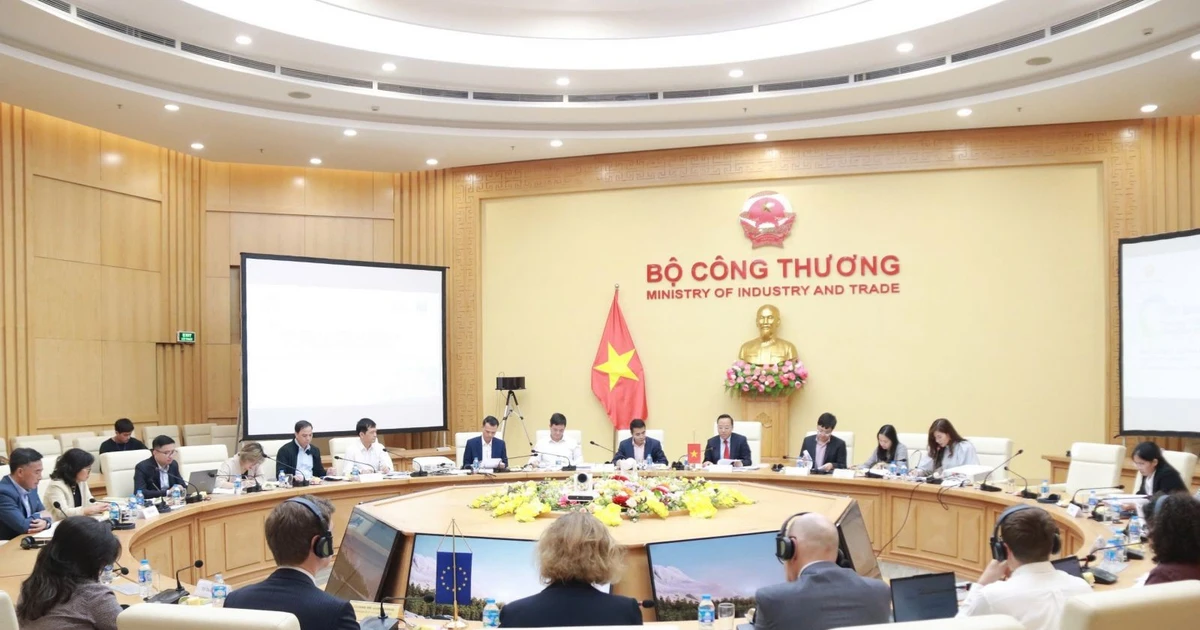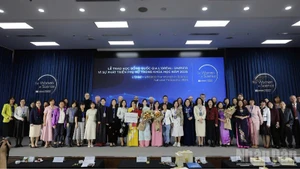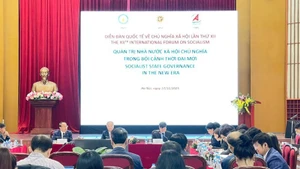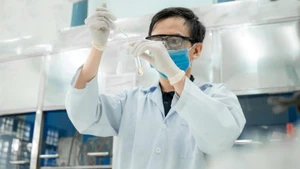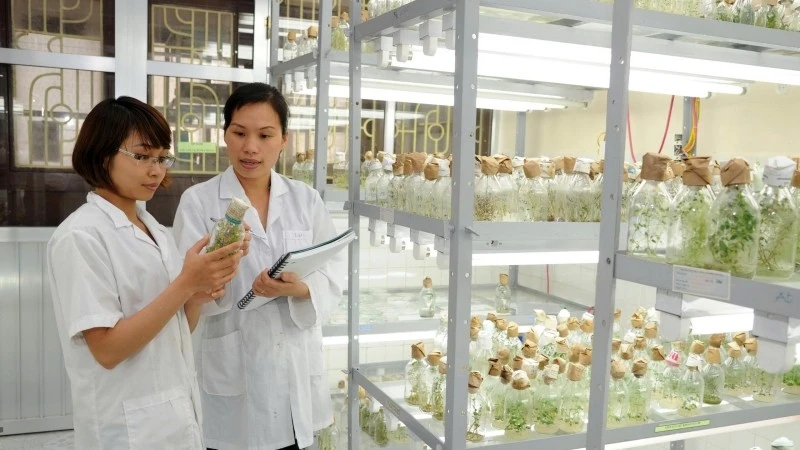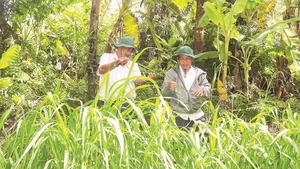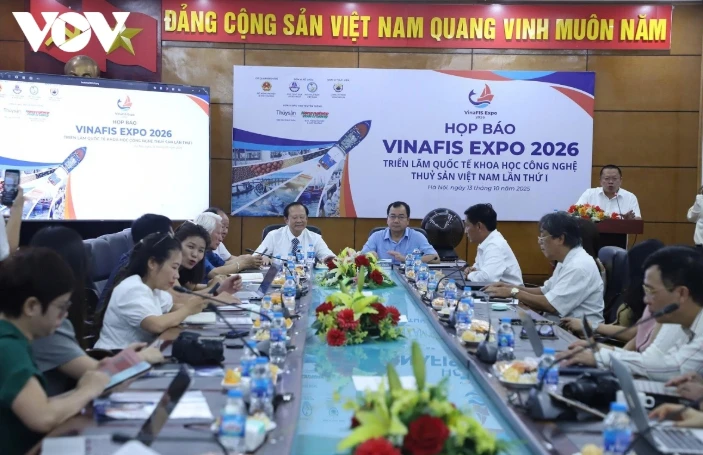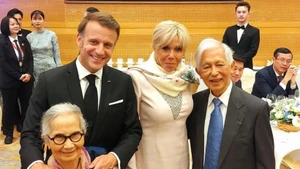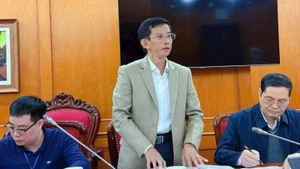Aspirations for dedication
Dr. Do Tien Phat, Head of the Plant Cell Technology Department, shared about his seven years studying in the US, five years working at the Institute of Biotechnology (IBT) of the Vietnam Academy of Science and Technology (VAST) and initial successes in scientific research.
Like many other international students, Dr. Do Tien Phat decided to return home because of the wishes of his family and colleagues, and his return helped him “go” further on his research path. Dr. Do Tien Phat said that he studied agriculture at the University of Missouri (the US), then continued his postdoc studies at Bond Life Sciences Centre, under the University of Missouri.
During this time, he was able to participate in research at leading laboratories for gene technology and plant molecular biology; from there, he had access to genome editing technology, developed and brought back to Vietnam. Immediately after returning home, with the support of agencies and colleagues, Dr. Do Tien Phat built a research group on genome editing at the Institute of Biotechnology, connecting and collaborating with research groups at the University of Science and Technology of Hanoi (USTH), Agricultural Genetics Institute, Mekong Delta Rice Research Institute, and Thai Nguyen University, in cooperation with international partners in the US, UK, and the Republic of Korea, India, and IRRI - International Rice Research Institute.
The combination has brought strength to the group to make steady progress. To date, the Institute of Biotechnology and USTH are among the first successful groups in Vietnam, in genome editing of plants. Since then, they have contributed to improving the quality of soybean seeds, improving the resistance to plant viruses in tobacco and papaya plants, and studying gene function in rice, with international publications and applied products.
In addition, the group participates in training many students, masters and doctoral students in this field. The happiest thing for researchers who are sent for training is to be able to adapt, develop what they have learned and make a small contribution to their homeland when they return home, Dr. Do Tien Phat confided.
The creative work of young intellectuals like Dr. Do Tien Phat is the commitment, to overcome many initial difficulties to open new paths for science, bringing knowledge to serve the country. That innovative spirit is also reflected by the young people of the Vietnam – Korea Institute of Science and Technology.
Dr. Hoang Anh Viet - a researcher from the Department of Energy and Environment Technology, just returned home after five years of studying for his master’s and a doctorate in Japan. Returning to the homeland, he proposed many studies to solve the urgent problems of Vietnam's environment. Up to now, research and development of activated carbon from coffee grounds to treat toxins in water has been completed. He is also working on perfecting the treatment system for saline and alum-contaminated water by Reverse Osmosis (RO) technology.
In Japan, he has done quite successful research on the treatment and recovery of chromium and arsenic - which are carcinogenic substances - in water. When he returned home, he focused on developing materials for the treatment of high-concentration fluoride water in Khanh Hoa and Phu Yen provinces. The high-concentration fluoride water is the cause of tooth enamel staining, dark spots, tooth decay, and erosion of the user's teeth.
Activated carbon is made from materials available in Vietnam, which are coffee grounds. In the future, coconut shells and durian shells will also be reused to make agricultural by-products, shared Dr. Hoang Anh Viet. He also cherishes many plans, such as recovering precious metals, such as cobalt and nickel from chromium mining landfills and waste batteries of electric vehicles, to be the main raw material for battery production in the current trend of electric vehicles.
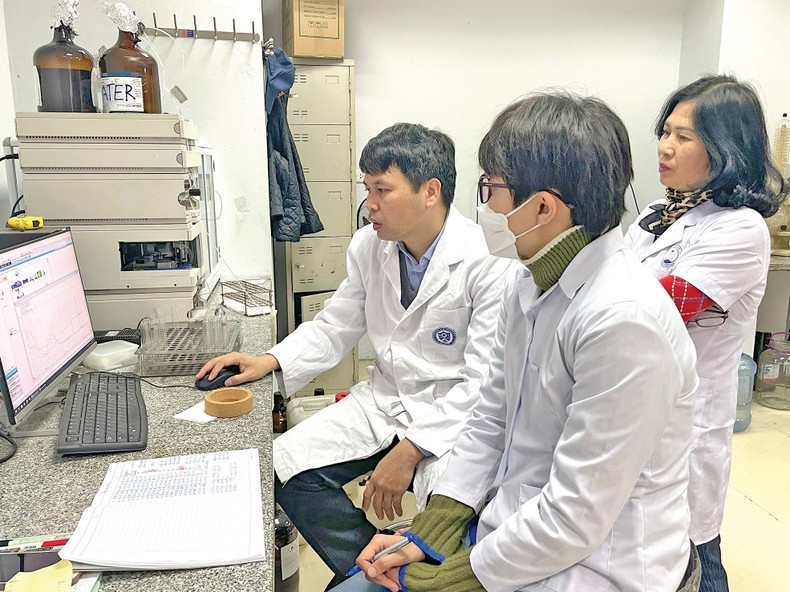 |
| Assoc. Prof. Dr. Nguyen Xuan Nhiem (left) guides students and researchers. |
In Vietnam, the research environment at the Vietnam – Korea Institute of Science and Technology is quite ideal, attracting many young scientists back home. At the Vietnam-Korea Institute of Science and Technology, the foundation technologies are gradually forming, catching up with advanced countries to provide solutions to dominate the industrial production market.
Visiting the robotics laboratory, Researcher Nguyen Duc Dinh introduced the equipment successfully designed and manufactured by the research team of the Mechatronics Department. The robot can choose a point on the map to operate on its own. This foundational technology can be applied to the production of delivery robots or delivery drones.
Dinh also talked in admiration about the department head who returned to Vietnam after being in Japan for ten years, sought out the best students at the Hanoi University of Science and Technology, and then set up the current research team. It is Pham Duy Hoc, head of the VKIST’s mechatronics department.
“He took his family back to Vietnam because of an aspiration to master the core technologies for important applications and provide them to enterprises to create the country’s technological foundation. He works day and night with his research team at Hoa Lac Hi-tech Park throughout the week and only goes home to his family at the weekend. He is the one who gives technical guidance and spreads the spirit of working hard and leading an amicable way of life”, added Dinh.
“If I stay, it is only good for me”
Among the reasons why scientists are returning home are the positive changes in the domestic research environment. Dr Hoang Anh Viet shared that he was looking for a job suitable for his expertise and research interests in Japan and the Republic of Korea. His choice to go home it is not only because he can live near his family but also because he has realised that the research environment has improved, as more investment is being poured into science and technology, with research-sponsoring funds and dedicated postdoctoral programmes at some universities.
One thing for sure is that the profound awareness of these young scientists on personal responsibility towards society has helped them choose the right path of returning home. Associate Professor Nguyen Xuan Nhiem, at the Institute of Marine Biochemistry under the Vietnam Academy of Science and Technology, shared that after seven years of doing doctoral and postdoctoral programmes in the Republic of Korea, he refused job opportunities abroad to return to Vietnam to both do research and provide high-quality human resource training.
He said that if he lives abroad, he could have a well-off life, but it would only be good for himself. In returning to Vietnam, he has the chance to multiply the good values that he has accumulated. Since his return in 2014, Associate Professor Nguyen Xuan Nhiem has instructed five candidates to successfully defend their doctoral theses and is currently guiding another five.
In addition to spreading professional knowledge, Associate Professor Nhiem also provides skills and character education for scientists, because, according to him, science might become outdated but character will endure with time.
Like many other scientists who chose to go home, he always keeps contacts and collaborates with his colleagues in the Republic of Korea, where he used to study. Every year, he goes back there for 3-6 months to cooperate, send students for training, or invite professors to teach in Vietnam.
He always reminds himself that many generations of scientists, such as Professor Chau Van Minh, President of the Vietnam Academy of Science and Technology, have pioneered in opening the path for cooperation with foreign scientists or Vietnamese people abroad, and now those of the younger generation like himself have the responsibility to succeed them. He said if each one opens the way a little more, then the small path will one day become an avenue enhancing Vietnam’s scientific and technological human resources.
Speaking about their future plans, all scientists shared that their strongest desire is to apply their technologies to serve national development. As Dr Do Tien Phat said, several products from genetic modification have been accepted by Japan, the US and China. Vietnamese policymakers are approaching this matter and it is hoped that there will be specific policies to take research products to manufacturers so as to directly benefit the community. Only when that happens will their research be completely meaningful. Young researchers at the VKIST also affirmed that what they are doing is for the greater cause of domestic science and technology, although the income is not as high as working at enterprises.
What these young scientists are pursuing has bolstered confidence that, with their commitment and go-getter spirit, there will be new technological products and new values to provide a new boost for country in the near future.
